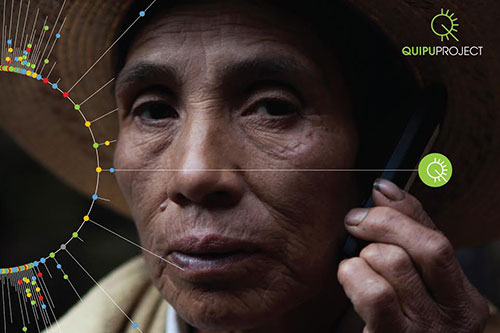Many did not give full consent for their sterilisation and some were forced to do so. Almost twenty years later they are still seeking justice. This is the first time that their testimonies can be listened to around the world.
The project, a partnership between the University of Bristol and Chaka Studio, developed a special telephone line in Peru that could be connected to a webpage where testimonies can be shared nationally and globally.
The system, which uses a free and open source framework called VoIP Drupal developed by the MIT Center for Civic Media, allows people who are not connected to the internet to shape the interactive documentary.
The two-way phone line enables people who listen to the testimonies online to leave a message of response and support for the women to listen to through the phone line. This creates a dialogue with the people who left testimonies and creates a positive dynamic allowing the stories to be shared and awareness of the issue to be raised. The testimonies are translated and subtitled and can be listened to via www.quipu-project.com.
“We want justice to be done. With this message we want people from all over the world to know what happened in our country, Peru. And everyone to learn about the sterilizations and vasectomies they did to all of us.” Testimony #27, Ayacucho, 2014.
“I am asking for justice because for many years we haven’t found justice. We are ill, we have serious infections, our bodies are in pain, we don't have our full health, and so we want justice. Over the many years that we have complained, nobody has ever listened to us. The women from the countryside that never ask for anything are dying, some have already died, my friends, without anybody listening to them. So we want justice.” Testimony #36, Cusco, 2015.
The Quipu Project wants to raise awareness about the unconsented sterilisations and to inform public debate in Peru and around the world.
Dr Matthew Brown of Bristol’s Department of Hispanic, Portuguese and Latin American Studies said: “This has been an amazing project to have been part of. The Quipu Project webpage is incredibly powerful, and we hope that people who listen to the testimonies will be moved to leave a response and share the stories with friends and family.”
The Bristol launch will take place at the Watershed at 7pm on Thursday 10 December. It is free and open to the public. Registration is recommended.
The Lima launch will take place at the Institute of Democracy at the Catholic University in Lima. It is also free and open to the public.
